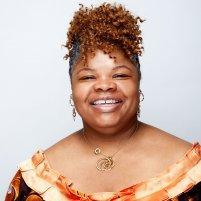Accepting New and Telehealth Patient
Accepting New and Telehealth Patient

Many people with schizoaffective disorder are misdiagnosed with bipolar disorder or schizophrenia because they have symptoms of both. At Coping Nurse Practitioner in Psychiatry Services in Kansas and Uniondale, New York, Judy E. Vansiea, DNP, MA, MS, APRN, NPP, takes a holistic and integrated approach to treating schizoaffective disorder. Dr. Vansiea provides in-office and telehealth appointments for those living in Kansas and the boroughs of New York City, including the Bronx, Brooklyn, Manhattan, Queens, and Staten Island, as well as people living in Suffolk and Nassau Counties and all residents of New York and Kansas. Call the office or book a virtual or in-person appointment online.
Schizoaffective disorder is a condition in which someone has both mood disorder and psychotic symptoms. Essentially, people with schizoaffective disorder have a mood disorder, like depression or bipolar disorder, along with schizophrenia.
It’s relatively rare and difficult to diagnose because it causes such a wide range of symptoms. However, with the right diagnosis and treatment plan, people with schizoaffective disorder can live a full and fulfilling life.
Schizoaffective disorder symptoms vary in type and severity. Symptoms may include:
Hallucinations are false perceptions involving the senses, like hearing or seeing something no one else can hear or see.
Delusions are strong beliefs in things that are false or proven untrue, such as the belief about having special powers or that someone wants to cause them harm.
Providing answers to questions that don’t make sense and switching from one topic to the next are examples of disorganized thinking.
Feeling sad, hopeless, and empty are depression symptoms that may occur in people with schizoaffective disorder.
Racing thoughts, anxiety, and euphoria are examples of manic symptoms. People with bipolar disorder, a mood disorder that causes extreme emotional highs (mania) and lows (depression), experience manic symptoms.
Mood disorder symptoms determine the schizoaffective disorder type, which includes bipolar type, depressive type, and mixed type.
Researchers are still learning about schizoaffective disorder and its underlying causes, but they theorize it may develop from a combination of genetic and environmental factors.
Schizoaffective disorder tends to run in families, suggesting a genetic link. There’s also some evidence that there are differences in brain structure and function in people with schizoaffective disorder.
Stress and drug use may trigger the chronic mental health condition.
Dr. Vansiea takes a holistic and integrative approach to mental health. She customizes treatment plans to best meet individual needs. Treatment for schizoaffective disorder may include a combination of medication management, psychotherapy, and skills training.
With her training and experience, Dr. Vansiea takes a comprehensive approach, addressing all factors that affect health and wellness, including physical, emotional, social, and spiritual.
It’s not uncommon for people with schizoaffective disorder to struggle with substance abuse, which Dr. Vansiea also treats.
For compassionate and empathetic care, call Coping Nurse Practitioner in Psychiatry Services to schedule an appointment today.
Design and Developed by Devopsalign © Copyright 2024 – Coping Nurse Practitioner in Psychiatry Services – All Rights Reserved.